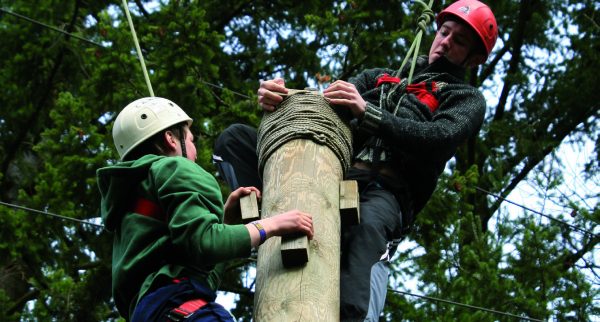Today’s teenagers face unprecedented pressures. They have to grow up fast and are not always psychologically prepared to handle the pace and the pressure. When this happens it can lead to a number of mental health issues – such as depression and anxiety.
Teenagers with strong mental resilience are capable of handling this transition into adulthood with minimal difficulty.
Now more than ever it is critical to teach teenagers to value themselves. By understanding their inherent value, they will better be able to see how they can add value to their surroundings.

A great way to build value and self-esteem is through involvement with co-curricular activities.
The benefits of co-curricular activities can improve a teenager’s quality of life in several ways. They provide opportunities for community involvement, as well as a platform for developing mental resilience. A full and busy time-table requires responsibility and time management and there is now a growing body of research that is telling us that being ‘active’ and participating in co-curricular activities drastically reduces the probability of mental health issues.
After school or lunch-time activities can include playing sports, playing a musical instrument in a band or orchestra, debating, playing chess, book club, CCF, Art, Drama, DofE… etc. At Dollar this is just the tip of the iceberg.
Click here to discover the full range of co-curricular activities on offer at Dollar.
5 Benefits of Co-curricular Activities
- Skill Development
Co-curricular activities will expose pupils to new skills and an expanded worldview. Growth is the cornerstone of personal development. Learning a musical instrument is one of the few activities that engages both sides of the brain. It is simultaneously creative and analytical. On the other hand, organised sporting activities teach pupils how to apply physical and mental energy in conjunction with strategy. Both activities promote practice, discipline, organisation, and teamwork. These skills will prove useful throughout life.
- Increased Self-Esteem
Self-esteem and self-worth are achieved through success. Co-curricular activities provide many challenges and opportunities for success. They can also teach pupils how to learn from failure.
One of the greatest benefits of co-curricular activities is that they offer a chance to develop and master skills in a fun and relaxed environment. Skill development leads to confidence, which in turn leads to a higher self-esteem.

- Improved Social Skills
Making friends can be difficult for some pupils. Co-curricular activities allow pupils to be surrounded by individuals who have shared interests and experiences. Being in this type of situation on a regular basis will not only nurture new friendships but will also teach them how to relate to others by working together towards a common goal.
- Better Grades
One might think that getting involved in co-curricular activities could distract from homework and academic responsibilities. This is not the case. Co-curricular activities promote passion and excitement – qualities proven to improve brain functionality. They also require effective time management, helping pupils to develop the ability to prioritise opposing responsibilities.
- Improved Health and Wellbeing
One of the greatest benefits of co-curricular activities is that they promote mental, emotional, and physical health. They require pupils to use strategy, manage time effectively, cooperate with others, develop new skills, be social, be confident etc. The list goes on. By engaging in co-curricular activities, pupils learn how to be productive members of society. This establishes self-esteem, self-worth, and allows them to see their potential. Pupils who do not participate in co-curricular activities are far more likely to experience anxiety, depression and social difficulties.

Being mentally resilient means that you have positive outlets for handling your feelings and emotions. It also means fulfillment in life, work, and relationships. It is important to keep in mind that being mentally healthy does not mean that you won’t experience ups and downs. People that are busy, active and that get themselves involved in everything that is going on can still feel anxious and depressed. The difference is that they don’t allow their feelings to define them. Through a healthy detachment from their feelings, they are able to accept reality as it is. Co-curricular activities help foster community and self-awareness, giving pupils a healthy means of defining their budding identities in positive and proactive ways.
References:
https://www.sec-ed.co.uk/best-practice/extra-curricular-activities-to-support-good-mental-health/


